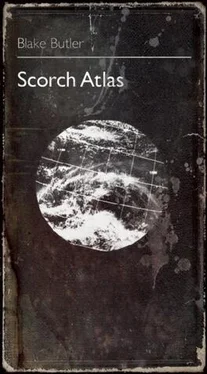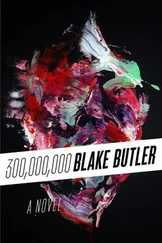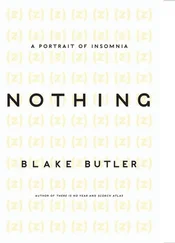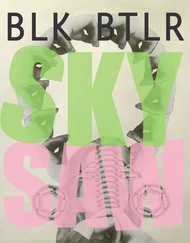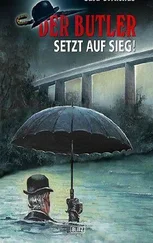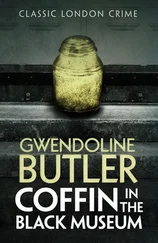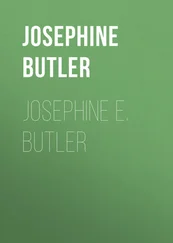The seething moved in small creation through the cramped halls of our school. Popular kids got it. Kids with glasses. Kids in special ed. Teachers called out absent, then their subs did. Sometimes we were left in rooms unmanned for hours. There were so many missing they quit sending people home. Fast rashes rushed from collars. Guys showed up with their eyes puckered in glop. My lab partner, Maria Sanchez, grew a strange mustache. They had to sweep the hallways several times a day.
Instead of our usual assignments, we read manuals on how to better keep our bodies clean. Diagrams were posted in our lockers. Baskets of dental floss and disinfectant were placed in nurse’s office with the condoms. No one really laughed.
Then, one day during my math class, men in military gear barged in. They had batons and air masks with complex reflectors. They made us stand in line with our hands against the wall. We spread and coughed while they roughed us over. They pulled hair samples and drew blood. From certain people they took skin grafts. The screaming filled the halls. They confiscated our cell phones and our book bags. Our class fish, Tommy, was deposed. The walls were doused with yellow powder. Several people fainted or threw up. They put black bags over the windows. The school’s exit doors were sealed with putty. A voice that was not the cafeteria lady’s came over the loudspeaker and said what was being served. We’d eaten lunch already. We sat at our desks and said the pledge. We sat at our desks with no one looking at each other. The sub for our sub was reprimanded for attempting exit. They laid her flat out on the ground.
We were contained this way without explanation. Because of the window bags, we couldn’t tell how many days. There was a lot of time and no way to pass it. We were not allowed to talk or use the restroom. We were given crossword puzzles and origami. The PA played Bach and Brahms over the rumble overhead. When the lunchroom ran out of leftovers, we were fed through tubes lowered from the ceiling.
After the first rash of fistfights and paranoia spasms, they locked our wrists with plastic. They turned the a/c heat to high. The veins began to stand out on people’s heads. Their skin went red and dented, then bright purple. Their hair fell out. Their teeth and nails grew green and yellow. Their swollen limbs bejeweled with sores. Cysts blew big in new balloons.
I felt fine. I felt an aura, my mother’s breath encircling my head.
The costumed men carried the expired elsewhere. Those who weren’t sick were crazed. I watched a girl bang her face in on a blackboard. I watched a boy stick out his eyes. The rest of us sat with our hands flat on the desktops, not sure which way to turn.
Soon the power was extinguished. False neon panels were employed. Peals of static began to interrupt the PA’s symphonies. A sudden voice squawked through with contraband report. Look what we’ve done. Can you imagine? Half the nation under quarantine. The buildings crumpled. The oceans aboil. The President’s committed suicide. And now, just a bit too late, we’re getting rain. The men burst in and shot the speaker with a machine gun. They said to assume the duck and cover. One spotty redhead whose glasses had been confiscated refused to get down. She walked around in small circles reaching from desk to desk to guide her way. The men zapped her in the neck with a large prong. She ran straight into a wall. She fell on the floor and bumped her forehead, and it spilled open on the white tile. None of the men would let me help them help her. They carried her out and wrapped our heads in plastic and went into the hall and shut the door. I heard the tumblers clicking in the lock. I saw the hall fill thick with smoke. There were sirens, screech and screaming. Something scraping on the roof. It wasn’t long yet until other. I didn’t try to think of what. Small Susie Wang huddled beside me, praying. She spoke in hyperventilated mumble. She put her hands over her mouth.
I sat on the floor in the neon light with stomach rumbling and sounds of flame and stink of rot. I saw things moving toward me and then gone. I couldn’t remember where or why I was. I couldn’t find my name writ on my tongue or brain-embedded. I felt a burning in my chest. I fumbled in my pockets for my father’s map. I stared and rubbed the paper between my fingers. I read the sightings’ dot’s dates with my wormed eyes, connecting them in order. There was the first point where my father felt sure he’d seen mother digging in the neighbor’s yard across the street. And the second, in the field of power wires where Dad swore he saw her running at full speed.
I connected dots until the first fifteen together formed a nostril.
Dots 16 through 34 became an eye.
Together the whole map made a perfect picture of my mother’s missing head.
If I stared into the face, then, and focused on one clear section and let my brain go loose, I saw my mother’s eyes come open. I saw her mouth begin to move. Her voice echoed deep inside me, clear and brimming, bright, alive.
She said, “Don’t worry, son. I’m fat and happy. They have cake here. My hair is clean.”
She said, “The earth is slurred and I am sorry.”
She said, “You are OK. I have your mind.”
Her eyes seemed to swim around me. I felt her fingers in my hair. She whispered things she’d never mentioned. She nuzzled gleamings in my brain. As in: the day I’d drawn her flowers because all the fields were dying. As in: the downed bird we’d cleaned and given a name. Some of our years were wall to wall with wonder, she reminded me. In spite of any absence, we had that.
I thought of my father, alone and elsewhere, his head cradled in his hands. I thought of the day he’d punched a hole straight through the kitchen wall, thinking she’d be tucked away inside. All those places he’d looked and never found her. Inside their mattress. In stained-glass windows. How he’d scoured the carpet for her stray hair and strung them all together with a ribbon; how he’d slept with that one lock swathed across his nostrils, hugging a pillow fitted with her nightshirt. How he’d dug up the backyard, stripped and sweating. How he’d played her favorite album on repeat and loud, a lure. How when we took up the carpet in my bedroom to find her, under the carpet there was wood. Under the wood there was cracked concrete. Under the concrete there was dirt. Under the dirt there was a cavity of water. I swam down into the water with my nose clenched and lungs burning in my chest but I could not find the bottom and I couldn’t see a thing.
DUST
Dry flakes of charcoal came big as men’s heads, slather from some great fire overhead. The ash rained black into the evening, clung against the mud as some new second skin. Each inch sat spackled, crusted over. Each inhale brought a mouthful. The streets intoned with choral wheeze and incensed hiccup. We made facemasks out of old newspapers — the current editions no longer came. The mail service had gone under — one minor blessing: I stopped receiving bills. The finer dust came down in curling spigots. The sick began to bundle, hung at home. Count emphysema. Count belabored lungs. As well: asthma, croup and coughing. The air so thick we called it paste. Strung among the gusts came reams of loose hair. Blonde or black streamers stole from sore heads. Cells clogged the chimney, laced the evening. Though the TV went out again in interference, radioed men spoke the wreckage even in our sleep: whole apartment buildings ransacked in skin flakes; baseball stadiums filled to the brim; the faces of lakes and oceans so thick that you could walk forever. The plumes of powder flew over our yards. It beat against our windows, making bass. I learned to breathe in smaller rhythms. The incubated heat swelled so high outside you’d sweat forever, then more dust. Eyes encrusted. Nostrils clogged. One night, finally, the roof over my living room succumbed to all the weight. Somewhere in there, under all that dander, I often would regret I had not been.
Читать дальше
